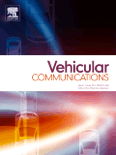
Vehicular Communications
Scope & Guideline
Bridging Theory and Practice in Automotive Technology
Introduction
Aims and Scopes
- Vehicular Networking and Communication Protocols:
Research on protocols designed for communication between vehicles (V2V), between vehicles and infrastructure (V2I), and between vehicles and the cloud (V2C). This includes the development of new communication standards, enhancements in existing protocols, and performance evaluations. - Security and Privacy in Vehicular Communications:
The journal emphasizes the importance of cybersecurity measures and privacy-preserving techniques in vehicular networks. This includes authentication schemes, intrusion detection systems, and the use of blockchain technologies to secure communication. - Edge and Cloud Computing for Intelligent Transportation Systems:
Exploration of edge and cloud computing solutions that enhance vehicular networks through improved data processing, storage, and resource management, facilitating real-time decision-making in applications like traffic management and autonomous driving. - Machine Learning and AI Applications:
Application of AI and machine learning techniques to optimize vehicular communication, enhance decision-making processes, and improve traffic efficiency and safety. - UAV Integration in Vehicular Networks:
Research on the integration of unmanned aerial vehicles (UAVs) into vehicular networks, focusing on communication strategies, resource allocation, and collaborative systems for enhanced operational capabilities. - Innovative Networking Technologies:
Investigation of new networking paradigms, including 5G and beyond, as well as the use of intelligent reflecting surfaces (IRS) and other advanced technologies to improve vehicular communication performance.
Trending and Emerging
- Federated Learning and Collaborative Intelligence:
There is a growing interest in federated learning approaches that allow for collaborative intelligence across vehicles, enhancing data privacy while improving machine learning models for traffic prediction and anomaly detection. - Blockchain Applications in Vehicular Networks:
Blockchain technology is increasingly being explored for securing vehicular communications, enabling decentralized trust mechanisms, and enhancing data integrity and privacy in various applications. - Integration of UAVs in Transportation Systems:
The integration of UAVs into vehicular networks is a trending theme, focusing on collaborative scenarios where UAVs assist in traffic management, data collection, and communication relay. - Energy-Efficient Solutions and Green Technologies:
Research is increasingly focused on energy-efficient communication protocols and green technologies in vehicular networks, addressing the need for sustainability in transportation. - AI-Driven Traffic Management and Safety Systems:
Artificial intelligence is being leveraged to develop advanced traffic management systems that enhance safety, efficiency, and the overall user experience in smart transportation environments. - Advanced Security Mechanisms and Privacy-Preserving Techniques:
There is an increasing trend toward developing sophisticated security mechanisms that not only protect vehicular communications but also ensure user privacy through advanced cryptographic techniques.
Declining or Waning
- Traditional Vehicle-to-Vehicle Communication Models:
The reliance on conventional V2V communication models has decreased as researchers explore more complex and integrated systems that incorporate AI, edge computing, and advanced networking technologies. - Basic Security Protocols without Advanced Mechanisms:
Research focusing solely on traditional security protocols without incorporating modern advancements such as blockchain or machine learning is becoming less frequent, as the field demands more sophisticated solutions. - Static Traffic Management Solutions:
Older approaches to traffic management that do not leverage real-time data analytics or adaptive systems are losing traction in favor of dynamic and intelligent systems that can respond to changing traffic conditions. - Single-Technology Solutions:
There is a noticeable decline in research that focuses solely on one technology (e.g., only focusing on Wi-Fi or only on cellular networks) as the field moves towards more integrated multi-technology approaches. - Generic Surveys without Specific Applications:
Surveys that do not provide in-depth insights into specific applications or emerging technologies are becoming less relevant, as researchers seek more targeted and detailed analyses.
Similar Journals
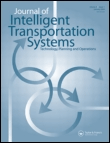
Journal of Intelligent Transportation Systems
Driving Innovation in Intelligent Transportation SystemsThe Journal of Intelligent Transportation Systems is a premier peer-reviewed journal published by Taylor & Francis Inc, focusing on cutting-edge research in the fields of transportation systems and intelligent technologies. With an ISSN of 1547-2450 and an E-ISSN of 1547-2442, this journal stands out with its impressive impact, consistently ranking in the Q1 Quartile across multiple categories such as Aerospace Engineering, Applied Mathematics, and Automotive Engineering, among others. As of 2023, it holds distinguished Scopus rankings, including a remarkable #11 position in Aerospace Engineering, showcasing its significance in shaping contemporary research in intelligent transportation. Targeted at researchers, professionals, and students alike, the journal provides a forum for the dissemination of innovative ideas and technologies that enhance transportation systems’ efficiency, safety, and sustainability. The Journal of Intelligent Transportation Systems has been operating since 2004 and continues to play a vital role in advancing knowledge within its respective areas of study within the United Kingdom and globally.
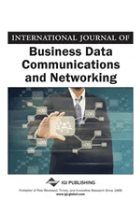
International Journal of Business Data Communications and Networking
Empowering Researchers in Business Data and Networking.The International Journal of Business Data Communications and Networking, published by IGI Global, stands as a pivotal resource in the fields of business and technology, particularly focusing on the interplay between data communications and network systems. With an established presence since 2005, this journal has been instrumental in disseminating research that bridges the gaps between computer networks, management information systems, and business practices. It holds a commendable position in the academic community, reflected in its Q3 rankings in both Computer Networks and Communications and Management Information Systems categories for 2023, alongside respectable Scopus rankings that underline its relevance and contribution to the field. While it operates on a subscription basis, the journal's commitment to quality research makes it an essential read for researchers, practitioners, and students eager to stay abreast of the latest developments and innovations. The journal aims to foster a deeper understanding of the complexities surrounding business communications and data networking, encouraging the advancement of knowledge and practical application in these ever-evolving domains.

Internet Technology Letters
Shaping Tomorrow's Digital Landscape Today.Internet Technology Letters, published by John Wiley & Sons Ltd, is a dynamic and rapidly evolving journal that focuses on the innovative applications and developments within the realms of Artificial Intelligence, Computer Networks and Communications, Information Systems, and Software. With its E-ISSN 2476-1508 and a defined convergence period from 2018 to 2024, this journal seeks to address emerging trends and critical challenges confronting the digital landscape today. Recognized in the Q3 quartile range across multiple computer science categories in 2023, it serves as a valuable resource for researchers, professionals, and students seeking to advance their knowledge and stay updated on significant technological advancements. While currently not an open-access journal, Internet Technology Letters holds a prominent position on platforms like Scopus, ranked within the middle percentiles, reflecting its contribution to the academic community. The journal aims to foster connectivity between academia and industry, encouraging submissions that promote interdisciplinary collaboration and innovation. By creating a platform for sharing groundbreaking research, Internet Technology Letters plays a crucial role in shaping future technological landscapes.

Frontiers in Communications and Networks
Unleashing the Power of Open-Access ResearchFrontiers in Communications and Networks is a prominent open-access journal published by FRONTIERS MEDIA SA, established in 2020 and positioned in the heart of Switzerland. As an interdisciplinary platform, it focuses on advancing research related to computer networks, communications, and signal processing, providing a critical forum for innovative findings and developments in these rapidly evolving fields. With an impressive Q1 ranking in Computer Networks and Communications and a Q2 ranking in Signal Processing as of 2023, this journal is highly regarded among scholars and practitioners seeking to disseminate their work to a broad audience. By offering open-access options, it ensures that the research is widely available, fostering collaboration and knowledge sharing across the globe. Researchers, professionals, and students are encouraged to engage with the journal as it aims to encapsulate the burgeoning advancements shaping our digital communication landscape.
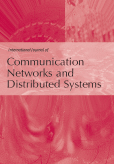
International Journal of Communication Networks and Distributed Systems
Advancing the Future of Digital CommunicationInternational Journal of Communication Networks and Distributed Systems is a prestigious academic platform dedicated to the exploration and advancement of research in the realms of communication networks and distributed systems. Published by INDERSCIENCE ENTERPRISES LTD in the scenic locale of Switzerland, this journal aims to bridge the gap between theoretical innovations and practical applications, catering to a diverse audience of researchers, professionals, and students. With an ISSN of 1754-3916 and an E-ISSN of 1754-3924, it has established itself as a valued resource in its field, currently ranking in the Q3 category in Computer Networks and Communications according to the latest metrics. The journal's commitment to fostering high-quality research is underscored by its convergence of studies from 2008 to 2024. Though it operates under traditional access, it encourages a wide dissemination of knowledge, emphasizing the importance of ongoing dialogue in advancing communication technologies. As technology continues to evolve, the International Journal of Communication Networks and Distributed Systems remains a critical forum for insights, best practices, and innovations that shape the future of digital communication.

ICT Express
Leading the Charge in Cutting-edge ICT ResearchICT Express is a leading open-access journal published by Elsevier that has established itself at the forefront of the fields of Artificial Intelligence, Computer Networks and Communications, Hardware and Architecture, Information Systems, and Software. Since its inception in 2015, this South Korea-based journal has provided a vital platform for disseminating innovative research and practical applications across these rapidly evolving domains. With an impressive impact factor and consistently high Scopus rankings—placing it in the top quartiles of its categories—it attracts contributions from both seasoned experts and emerging scholars. Current access options ensure that groundbreaking findings are readily available to a global audience, thus fostering collaboration and advancement in technology and computational sciences. As ICT continues to reshape various industries, the significance of research published in ICT Express is crucial for staying ahead in the digital landscape.

IEEE Intelligent Transportation Systems Magazine
Exploring the Intersection of Technology and TransportationIEEE Intelligent Transportation Systems Magazine, published by the IEEE-Institute of Electrical and Electronics Engineers Inc., is a leading journal in the fields of automotive engineering, computer science applications, and mechanical engineering. With an impressive impact factor reflected in its 2023 rankings, this journal sits in the top quartile (Q1) across multiple engineering categories, making it an essential resource for researchers and professionals dedicated to advancing the intelligent transportation systems landscape. The magazine covers a diverse array of topics from vehicle technology innovations to traffic management solutions, aimed at improving transportation efficiency, safety, and sustainability. Since its inception in 2009, the publication has established a solid reputation for disseminating cutting-edge research and practical applications in intelligent transportation, all while remaining an accessible resource for academic and industrial stakeholders alike. Subscribe today to stay at the forefront of transformative transportation technologies!
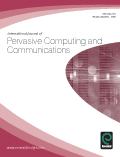
International Journal of Pervasive Computing and Communications
Pioneering interdisciplinary approaches in computing.The International Journal of Pervasive Computing and Communications, published by EMERALD GROUP PUBLISHING LTD, is a leading academic journal dedicated to advancing the field of pervasive computing and communications. With an ISSN of 1742-7371 and an E-ISSN of 1742-738X, this journal serves as a premier platform for researchers, professionals, and students to explore innovative applications and technologies that enhance connectivity and computing experiences. Operating from the United Kingdom, the journal has consistently maintained a strong impact within the academic community, achieving impressive Scopus rankings, including a Q2 status in Computer Science (miscellaneous) and Q3 in Theoretical Computer Science, as of 2023. The journal encompasses a broad scope, encouraging papers that discuss interdisciplinary approaches and novel methodologies in computing. By sharing cutting-edge research, the International Journal of Pervasive Computing and Communications plays a vital role in shaping the discourse surrounding pervasive technologies and their societal impacts, making it an essential resource for those looking to remain at the forefront of this dynamic field.
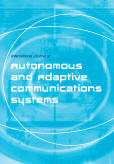
International Journal of Autonomous and Adaptive Communications Systems
Transforming Challenges into Solutions in Adaptive CommunicationsInternational Journal of Autonomous and Adaptive Communications Systems, published by INDERSCIENCE ENTERPRISES LTD, serves as a vital platform for researchers and professionals engaged in the dynamic fields of autonomous systems and adaptive communication technologies. Since its inception in 2008, this peer-reviewed journal has contributed to the advancement of knowledge within the realms of Computer Science and Electrical and Electronic Engineering, albeit currently positioned in the Q4 quartile, suggesting substantial opportunities for growth and influence within these disciplines. With an emphasis on innovative research tackling challenges in autonomous communication frameworks, the journal invites submissions that explore the convergence of various technologies and their applications. While the journal does not offer open access, it remains a significant resource for academia and industry at large, facilitating collaboration and dialogue among emerging scholars, seasoned experts, and applied practitioners in the UK and beyond. The journey of this journal from 2008 to its ongoing publications through 2024 reflects a commitment to fostering academic discourse in this essential area of study.
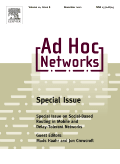
Ad Hoc Networks
Fostering Breakthroughs in Network Protocols and ApplicationsAd Hoc Networks, published by Elsevier, is a leading journal in the fields of Computer Networks and Communications, Hardware and Architecture, and Software, with an impressive Q1 ranking in all three categories as of 2023. With an ISSN of 1570-8705 and an E-ISSN of 1570-8713, this journal offers a robust platform for disseminating cutting-edge research and advancements in network technologies, emphasizing the importance of efficient communication protocols and architectures in contemporary computing environments. Operating from the Netherlands, it has emerged as a pivotal resource for researchers and professionals seeking to explore novel methodologies, frameworks, and applications within the domain of ad hoc and wireless networks. The journal's high impact factor and Scopus rankings—44th in Computer Networks and Communications, 20th in Hardware and Architecture, and 53rd in Software—underscore its relevance and authority in the academic community. Ad Hoc Networks is committed to fostering a deeper understanding of the complexities and innovations in network design, making it an essential read for anyone invested in the future of communication technology.